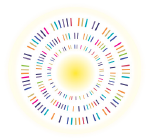Zinc is one of those things you’ll probably never notice – until it’s missing. In fact it’s essential for all forms of life. It’s a trace metal, which means that it’s needed only in very small amounts
– but the little things in life can count for a lot. That trace of zinc can make a huge difference to your health and wellbeing.
Why do you need zinc?
Zinc has an important role. It helps your brain to function efficiently, and it supports your immune system. It’s also involved in the way your body metabolises nutrients, and in the workings of your reproductive system. To have you looking good on the outside, zinc plays its part in keeping your hair, nails and skin in good condition, and contributes to healthy and efficient healing.
And if you aren’t getting enough zinc, you might start to notice problems in some, or all, of these areas.
Not enough zinc?
Zinc deficiency has been linked to skin problems and hair loss, unusually slow healing of wounds, and poor resistance to infection. It is sometimes associated with hormone imbalances and fertility problems. In children, it might be related to slow or delayed growth and learning difficulties. Zinc deficiency has also been noted in cases of anxiety and depression, mood and temper control and in some neurological disorders.
If you or your family members are experiencing any of these conditions, you can speak with a qualified nutritionist, naturopath or doctor, who can determine whether your zinc levels are adequate.
Think zinc-rich foods
The best sources of zinc are lean red meat, shellfish, whole dairy foods, legumes, tofu and other soy products, nuts, seeds, and wholegrain cereals. It’s important to remember that zinc is found in the outer layer of grains, so bran, wheat germ, and brown rice will provide up to 5 times more zinc than refined grains – like white rice – and products made with white flour.
What can cause zinc deficiency?
The average adult needs only about 8-11 milligrams of zinc per day. So, although the body doesn’t store zinc, you will have enough for your needs if you eat a healthy, balanced diet. Sometimes, though, zinc in the diet is not available for the body to use, and zinc deficiency is the result.
Some people experience a biochemical imbalance, where their bodies produce too much of a substance called hydroxyhempyrolin (HPL). This could be due to hereditary factors or it might be brought about by stress or other environmental triggers.
HPL ‘captures’ and binds zinc and vitamin B6, and causes them to be lost in the urine. A deficiency in these two important elements causes a range of symptoms, including stress, which then leads to the production of more HPL, and further problems related to zinc and vitamin B6 deficiency.
The good news is this ‘vicious circle’ can be broken.
With professional advice from a dietician or nutritionist, and the use of nutrient therapy, zinc deficiency can be corrected in a matter of months.



